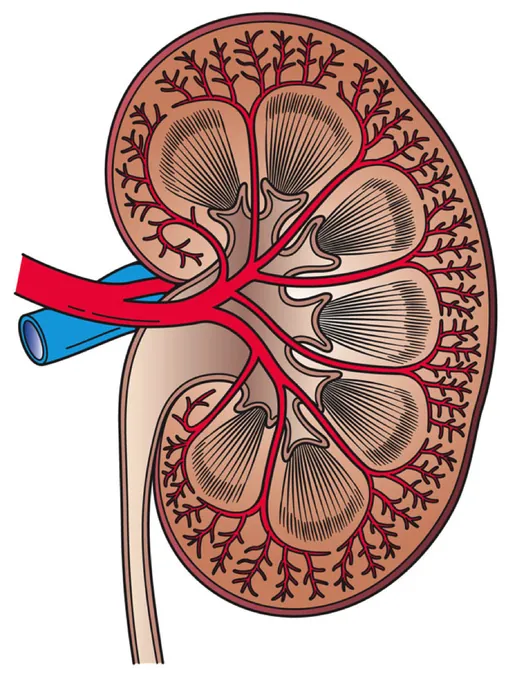
Revolutionary Protein Marker Combination Predicts Health Outcomes for Chronic Kidney Disease Patients!
2024-10-25
Author: Mei
Revolutionary Protein Marker Combination Predicts Health Outcomes for Chronic Kidney Disease Patients!
In a groundbreaking development, researchers from the National Institute of Diabetes and Digestive and Kidney Diseases (NIDDK) have taken a significant step forward in understanding chronic kidney disease (CKD) by integrating multiple protein biomarkers. This innovative strategy promises to enhance the ability to predict health outcomes in individuals suffering from this prevalent condition, which has long been burdened by individual biomarker assessments that often fail to provide comprehensive prognostic insights.
This research was unveiled during ASN Kidney Week 2024, held from October 23-27, where scientists presented their novel findings. The NIDDK CKD Biomarkers Consortium investigated a combination of 17 urine and plasma biomarkers previously linked to CKD progression, moving its focus from traditional single biomarker analysis.
To validate their approach, the researchers examined stored samples from a substantial cohort of 1,256 participants drawn from two significant studies: the Chronic Renal Insufficiency Cohort (CRIC) and the REasons for Geographic And Racial Differences in Stroke (REGARDS) study. All participants were diagnosed with diabetes and CKD, characterized by an estimated glomerular filtration rate below 60 ml/min/1.73m².
Identified Health Dimensions Associated with CKD
From their analysis, the researchers identified three distinct health dimensions associated with CKD:
1. Systemic Inflammation and Filtration:
This dimension includes plasma biomarkers such as TNFR-1, TNFR-2, suPAR, and SDMA.
2. Tubular Function:
Concerned with urine biomarkers like EGF, ADMA, and SDMA.
3. Tubular Damage:
Highlighting urine biomarkers such as α1m, KIM-1, and MCP-1.
Each of these dimensions demonstrated strong associations with CKD progression and mortality, independent of other clinical risk factors. Notably, increased tubular damage and diminished tubular function correlated with a higher risk of disease progression in one cohort. In both studies, elevated systemic inflammation and filtration scores were linked to increased mortality risk.
Dr. Vanessa-Giselle Peschard from UCSF, the study's corresponding author, emphasized the implications of these findings. She remarked, "This multi-biomarker approach holds promise in clarifying the diverse trajectories of CKD progression among diabetes patients by capturing crucial information regarding the kidney's glomerular and tubulointerstitial compartments."
Looking ahead, researchers stress the importance of continued investigation to ascertain whether these kidney health dimensions can provide prognostic value for individual patients or could be effectively utilized to monitor treatment responses in those receiving interventions aimed at improving kidney health.
This new paradigm in biomarker assessment shines a hopeful light on improving patient care and outcomes in chronic kidney disease, a condition affecting millions and often leading to severe health complications. Stay tuned for further updates on this exciting research that could change the landscape of CKD management!




 Brasil (PT)
Brasil (PT)
 Canada (EN)
Canada (EN)
 Chile (ES)
Chile (ES)
 España (ES)
España (ES)
 France (FR)
France (FR)
 Hong Kong (EN)
Hong Kong (EN)
 Italia (IT)
Italia (IT)
 日本 (JA)
日本 (JA)
 Magyarország (HU)
Magyarország (HU)
 Norge (NO)
Norge (NO)
 Polska (PL)
Polska (PL)
 Schweiz (DE)
Schweiz (DE)
 Singapore (EN)
Singapore (EN)
 Sverige (SV)
Sverige (SV)
 Suomi (FI)
Suomi (FI)
 Türkiye (TR)
Türkiye (TR)